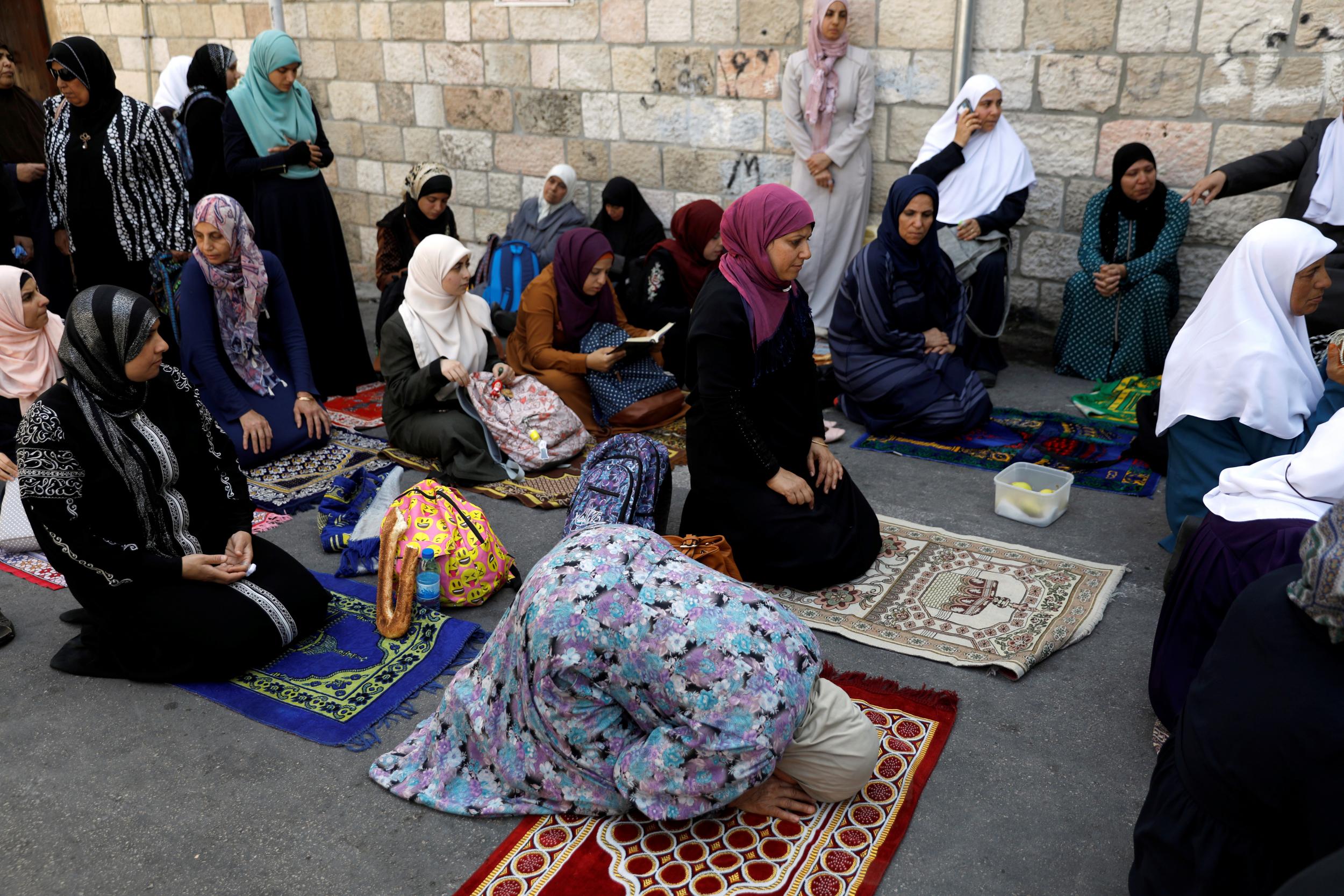Palestinians continue protest at Jerusalem holy site despite Israeli attempts to diffuse growing 'Temple Mount' crisis
City’s Supreme Islamic Committee demands all new security measures such as CCTV cameras removed, and fragile status quo restored at sacred compound

Your support helps us to tell the story
From reproductive rights to climate change to Big Tech, The Independent is on the ground when the story is developing. Whether it's investigating the financials of Elon Musk's pro-Trump PAC or producing our latest documentary, 'The A Word', which shines a light on the American women fighting for reproductive rights, we know how important it is to parse out the facts from the messaging.
At such a critical moment in US history, we need reporters on the ground. Your donation allows us to keep sending journalists to speak to both sides of the story.
The Independent is trusted by Americans across the entire political spectrum. And unlike many other quality news outlets, we choose not to lock Americans out of our reporting and analysis with paywalls. We believe quality journalism should be available to everyone, paid for by those who can afford it.
Your support makes all the difference.Palestinians in Jerusalem have once again met to pray outside the al-Aqsa mosque, rather than inside it, in an ongoing protest against perceived Israeli attempts to control access to the religious site.
Worshippers completed morning prayers outside the compound on Wednesday morning, despite the Israeli authorities’ decision to capitulate to Palestinian demands to remove metal detectors from the entrance to the al-Aqsa mosque.
Al-Aqsa is located inside the the city’s Noble Sanctuary, as it is known in Islam, or ‘Temple Mount’ in Judaism.The site is considered holy by followers of both religions, and as such is frequently the subject of tensions in the Arab-Israeli conflict.
Two Israeli guards were killed by Palestinian attacks outside the compound earlier this month, prompting the Israeli government to step up security at the site, including metal detectors, new railings, CCTV and a ban on entrance for Muslim men under the age of 50.
Access to the compound has always been a hugely politically sensitive issue. While it is located in East Jerusalem, which was annexed by Israeli in 1967, the Muslim-administered site has been operated by neighbouring Jordan in order to avoid conflict.
The new measures were met with outrage by Palestinians and across the Muslim world, sparking protests and violence which led to the deaths of at least four Palestinians in street clashes and the murder of three Israeli settlers in their home in the occupied West Bank.
Following international concern over the growing crisis, the Israeli cabinet voted on Monday to remove the metal detectors. However, the capitulation was not seen as good enough by many Palestinians, and high-profile calls for protests to continue have been heeded.
The Waqf religious body which runs the site, and head of Jerusalem’s Supreme Islamic Committee Ikrema Sabri, said on Wednesday that legal action is being considered to force the Israeli authorities to remove all the new measures – including sophisticated CCTV technology which can supposedly identify concealed objects.
Palestinian Authority President Mahmoud Abbas also reiterated that the current freeze on contact with Israel will remain in place until the status quo in Jerusalem is restored.
International observers, including the UN’s Middle East envoy Nickolay Mladenov, have urged both sides to come to a resolution before Friday prayers, which usually draw tens of thousands worshippers, take place.
The tensions could spread “well beyond” Jerusalem if there was disruption on the Muslim holy day, he warned.
Join our commenting forum
Join thought-provoking conversations, follow other Independent readers and see their replies
Comments